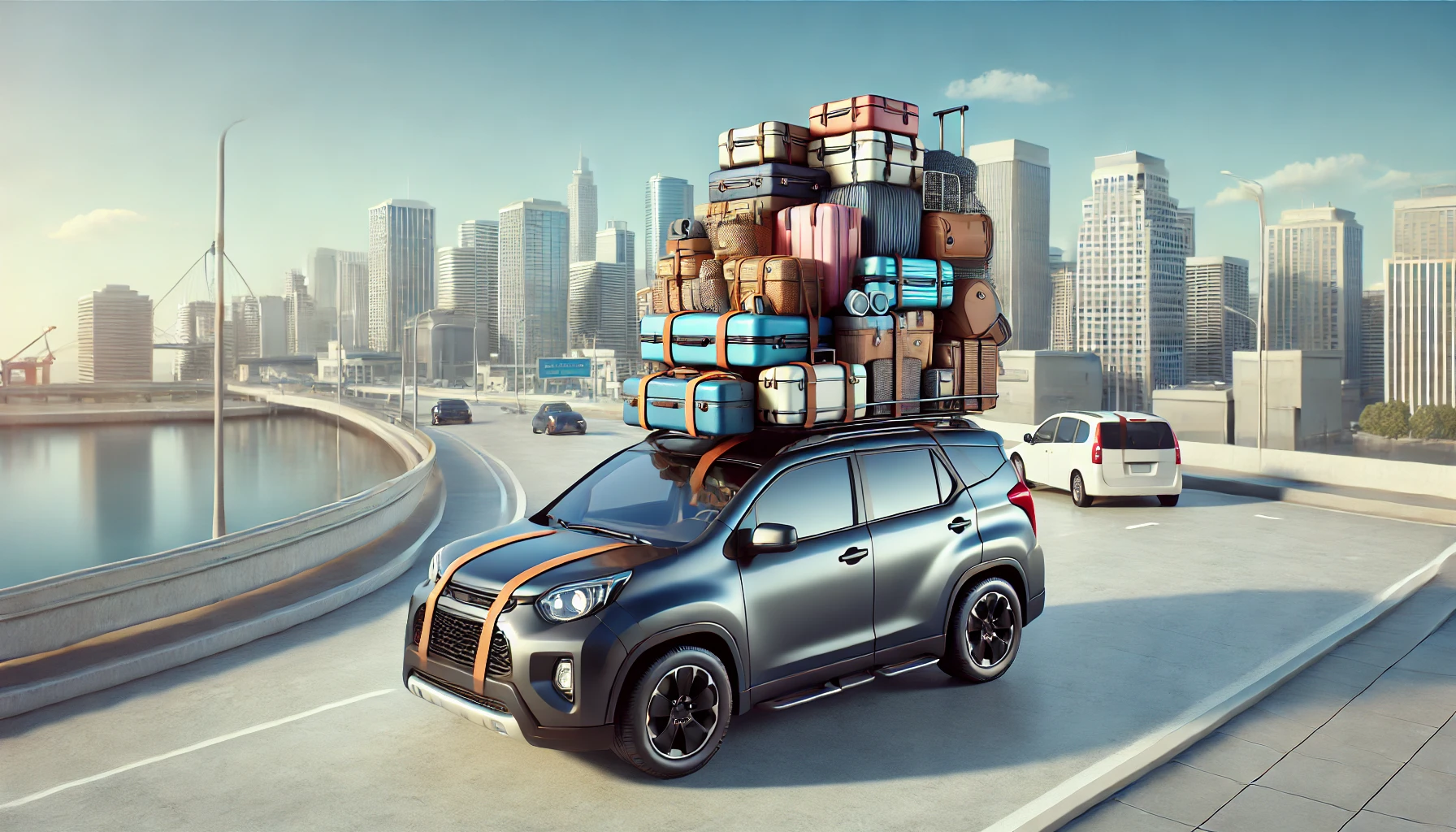Understanding the “Maximum Load Weight” of a Car: What It Means and Why It Matters
اخر تعديل: 2026-01-22 الكاتب: Sarah
[Car Tech Knowledge/ XNmotors]
When buying a car, one of the specifications you’ll frequently come across is the “maximum load weight” or “payload capacity.” This term might sound technical, but understanding it is crucial, especially if you plan on regularly carrying passengers, luggage, or heavy equipment. Here, we break down what maximum load weight means, why it’s important, and how to ensure you’re using your vehicle safely and efficiently.

Image Source: AI generated
What Is “Maximum Load Weight”?
The maximum load weight (often referred to as the payload capacity) is the total weight a vehicle can safely carry, in addition to its own weight. This includes everything that’s not a part of the car itself, such as passengers, luggage, and other cargo. It does not include the weight of the vehicle itself but is the maximum weight the car can handle in addition to its curb weight.
How Maximum Load Weight Is Calculated
To determine the maximum load weight of your car, manufacturers consider several factors, including:
• Chassis strength: The durability and strength of the vehicle’s frame.
• Suspension system: The capability of the suspension to support added weight.
• Tires: The tire ratings, which indicate the maximum weight they can bear.
• Braking system: Ensuring that the brakes can effectively stop the vehicle, even when fully loaded.
A car’s maximum load weight is typically listed in the owner’s manual or on a label located inside the driver’s side door frame. It is calculated as:
Maximum Load Weight = Gross Vehicle Weight Rating (GVWR) - Curb Weight
Here’s what those terms mean:
• Curb Weight: The weight of the car with a full tank of fuel and standard equipment but without passengers or cargo.
• Gross Vehicle Weight Rating (GVWR): The maximum total weight that the car can safely carry, including its own weight, passengers, and cargo.
Why Maximum Load Weight Is Important
Understanding your car’s maximum load weight is essential for several reasons:
1. Safety: Overloading a vehicle can cause various safety issues, such as reduced braking efficiency, longer stopping distances, and increased risk of tire blowouts. It can also impact handling, making the car harder to control, especially in emergencies.
2. Performance: A car that is carrying too much weight may experience reduced performance, such as slower acceleration, lower fuel efficiency, and excessive wear on the engine and transmission.
3. Legal Compliance: Exceeding your vehicle’s maximum load weight can result in fines if you’re pulled over or involved in an accident. Commercial drivers, in particular, must adhere to strict regulations regarding weight limits.
4. Vehicle Longevity: Regularly exceeding the maximum load weight can cause long-term damage to your car’s suspension, tires, and other components, leading to expensive repairs.
How to Avoid Overloading Your Car
To ensure you don’t exceed your car’s maximum load weight, follow these tips:
• Check the owner’s manual: This will give you the exact figures for your specific model.
• Weigh your cargo: If you’re unsure, consider using a scale to weigh heavy items before loading them into your vehicle.
• Factor in passengers: Remember that each person adds to the total weight, so take their combined weight into account when calculating your load.
• Distribute weight evenly: Try to distribute cargo weight evenly to avoid putting too much strain on one part of the car. For example, use roof racks or rear cargo carriers properly to maintain balance.
• Inspect your tires: Ensure your tires are properly inflated and rated to handle the weight you’re carrying. Overloaded tires can wear out quickly or even blow out on the road.
Common Misconceptions About Load Capacity
1. It’s not just about the trunk: The maximum load weight applies to the entire car, not just the cargo area. Every passenger and piece of gear counts toward the total weight.
2. Upgrading parts won’t change the limit: Installing heavy-duty suspension or tires might help your car handle weight better, but it does not officially increase the manufacturer’s specified maximum load weight.
3. Towing vs. payload capacity: The towing capacity is different from the payload capacity. Towing refers to how much weight the car can pull behind it (like a trailer), while payload refers to weight carried inside the vehicle.
Conclusion
Understanding and adhering to your car’s maximum load weight is crucial for your safety, your vehicle’s performance, and the longevity of your car. Before loading up for a long trip or transporting heavy items, take a moment to check your car’s specifications. Doing so will help you avoid potential problems on the road, keep your passengers safe, and ensure that your vehicle continues to run smoothly for years to come.
( Article / XNmotors Sarah )
التعليقات
لا توجد تعليقات حتى الآن. كن أول من يعلق.